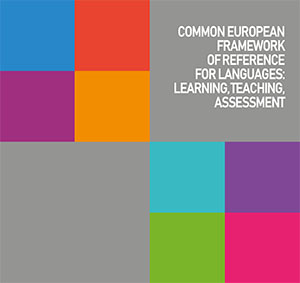Reference level descriptions (RLDs) developed so far
Depending on the member state concerned, a variety of individuals and establishments have been responsible for developing RLDs, including official institutions, bodies responsible for teaching a language and its international dissemination, such as the Spanish Istituto Cervantes, publishers, educational specialists and academics. Some RDLs are still in the planning or development stage. Most have benefited from the expert assistance of the Council of Europe.
List of RLDs assessed or deemed to comply with the Production Guide
Croatian
Three levels have been developed by the University of Zagreb’s Croaticum Centre, which specialises in the teaching of Croatian as a foreign language.
- Hrvatski A2: Opisni okvir referentne razine (2018)
- Hrvatski B1: Opisni okvir referentne razine B1
- Hrvatski B2 : Opisni okvir referentne razine B2
Czech
Levels A1, A2 and B2 are available on line on the site of the Czech Ministry of Education, Youth and Sports.
- Čeština jako cizí jazyk - Úroveň A1, 2005 - Univerzita Palackého v Olomouci, Katedra bohemistiky Filozofické fakulty (Ministerstvo školství, mládeže a tělovýchovy České republiky)
- Čeština jako cizí jazyk - Úroveň A2, 2005 - Univerzita Karlova v Praze, Ústav jazykové a odborné přípravy (Ministerstvo školství, mládeže a tělovýchovy České republiky)
- Čeština jako cizí jazyk, Úroveň B2, 2005 - Univerzita Karlova v Praze, Ústav bohemistických studií (Ministerstvo školství, mládeže a tělovýchovy České republiky)
English
The English Profile programme is a collaborative research programme using corpus data and other tools to produce detailed RLDs for English.
Website: www.englishprofile.org
Contact
French
The reference levels have been developed by a team of education specialists and French-speaking academics with the support of the French Directorate general for the French language and the languages of France (DGLFLF) - Ministry of Culture.
The full series of the 6 CEFR levels (A1, A2, B1, B2, C1 and C2) and A1.1 has been published by Edititions Didier.
- Beacco J.-C., de Ferrari M., Lhote G. & Tagliante C. (2005) : Niveau A1.1 pour le français, Paris : Didier. ISBN 2-278-05854-9
- Beacco J.-C. & Porquier R. (2007) : Niveau A1 pour le français, Paris : Didier. ISBN 978-2-278-05642-5 (with an audio CD)
- Beacco J.-C. & Lepage S. (2008) : Niveau A2 pour le français, Paris : Didier. ISBN 10 : 2278062999 ISBN 13 : 9782278062997
- Beacco J.-C., Blin B., Houles E., Lepage S. & Riba P. (2011) : Niveau B1 pour le français, Paris : Didier. ISBN 978-2-278-06399-4 (with an audio CD)
and Textes et Références. ISBN 978-2-278-06399-4 - Beacco J.-C., Bouquet S. & Porquier R. (2004) : Niveau B2 pour le français, Paris : Didier. ISBN 2-278-05573-3 (with an audio CD)
- Riba P. (2016) : Niveaux C1/C2 pour le français, Paris : Didier. ISBN 2278086677
Georgian
Reference level Description for the Georgian Language A1-A2-B1-B2 (developed in autonomy)
Ministry of Education, Tbilissi
German
The new strategy for the German language was initiated by the Goethe Institut. The Profile deutsch (Langenscheidt 2005) was drawn up by a tri-national team of authors. Discussions started in 2018 on a revised on-line version.
Italian
Levels A1, A2, B1, B2
Spinelli B. & Parizzi F. (2010) : Profilo della lingua italiana. Livelli di riferimento del QECR A1, A2, B1, B2. Milano : La Nuova Italia. ISBN 978-88-221-6331-8
These levels were developed by the Centro Valutazione Certificazioni Linguistiche del’ Università per Stranieri di Perugia.
Lithuanian
Levels A1, A2, B1, B2 (developed in autonomy)
Latviešu valodas Prasmes līmeņi - Latviešu valodas aģentūra, 2016
Portuguese
The levels are the work of specialists in Portuguese as a foreign language of the Camões institute.
Referencial Camões PLE (2017)
Institut Camões (Instituto da Cooperação e da Língua, I.P. - Divisão de Programação, Formação e Certificação) – Portugal.
Available as an e-book, supplemented by on-line inventories.
Spanish
The six levels have been drawn up under the auspices of the Cervantes Institute. They serve as a basis for the programme Plan curricular del Istituto Cervantes. Niveles de referencia para el español.
Full series of 6 levels (A1-A2, B1-B2, C1-C2)
Turkish
Level A1.1 for Turkish was developed by a team of volunteering educationalists and linguists working in three Turkish universities: Kırıkkale University, Burdur Mehmet Akif Ersoy University, and Ankara University.
Yabancı Dil Olarak Türkçe İlk Kazanımlar İçin Başvuru Rehberi A1.1 Düzeyi (2018). Polat, Y., Köse, D., Peçenek, D. & Durmuş, A. O.
Ankara: Kurmay Yayınevi. ISBN 978-605-2310-61-8



